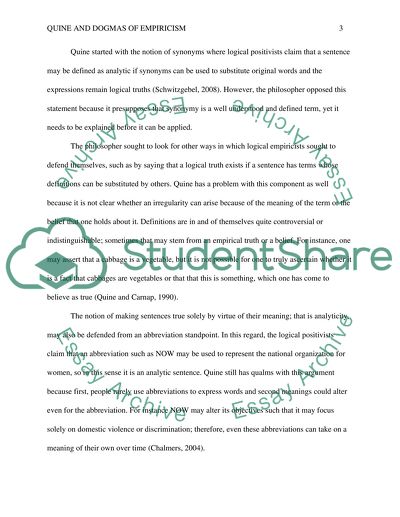Cite this document
(The Logical School as the Component of Reductionism Essay Example | Topics and Well Written Essays - 2750 words, n.d.)
The Logical School as the Component of Reductionism Essay Example | Topics and Well Written Essays - 2750 words. https://studentshare.org/philosophy/1645680-the-logical-school-as-the-component-of-reductionism
The Logical School as the Component of Reductionism Essay Example | Topics and Well Written Essays - 2750 words. https://studentshare.org/philosophy/1645680-the-logical-school-as-the-component-of-reductionism
(The Logical School As the Component of Reductionism Essay Example | Topics and Well Written Essays - 2750 Words)
The Logical School As the Component of Reductionism Essay Example | Topics and Well Written Essays - 2750 Words. https://studentshare.org/philosophy/1645680-the-logical-school-as-the-component-of-reductionism.
The Logical School As the Component of Reductionism Essay Example | Topics and Well Written Essays - 2750 Words. https://studentshare.org/philosophy/1645680-the-logical-school-as-the-component-of-reductionism.
“The Logical School As the Component of Reductionism Essay Example | Topics and Well Written Essays - 2750 Words”. https://studentshare.org/philosophy/1645680-the-logical-school-as-the-component-of-reductionism.


